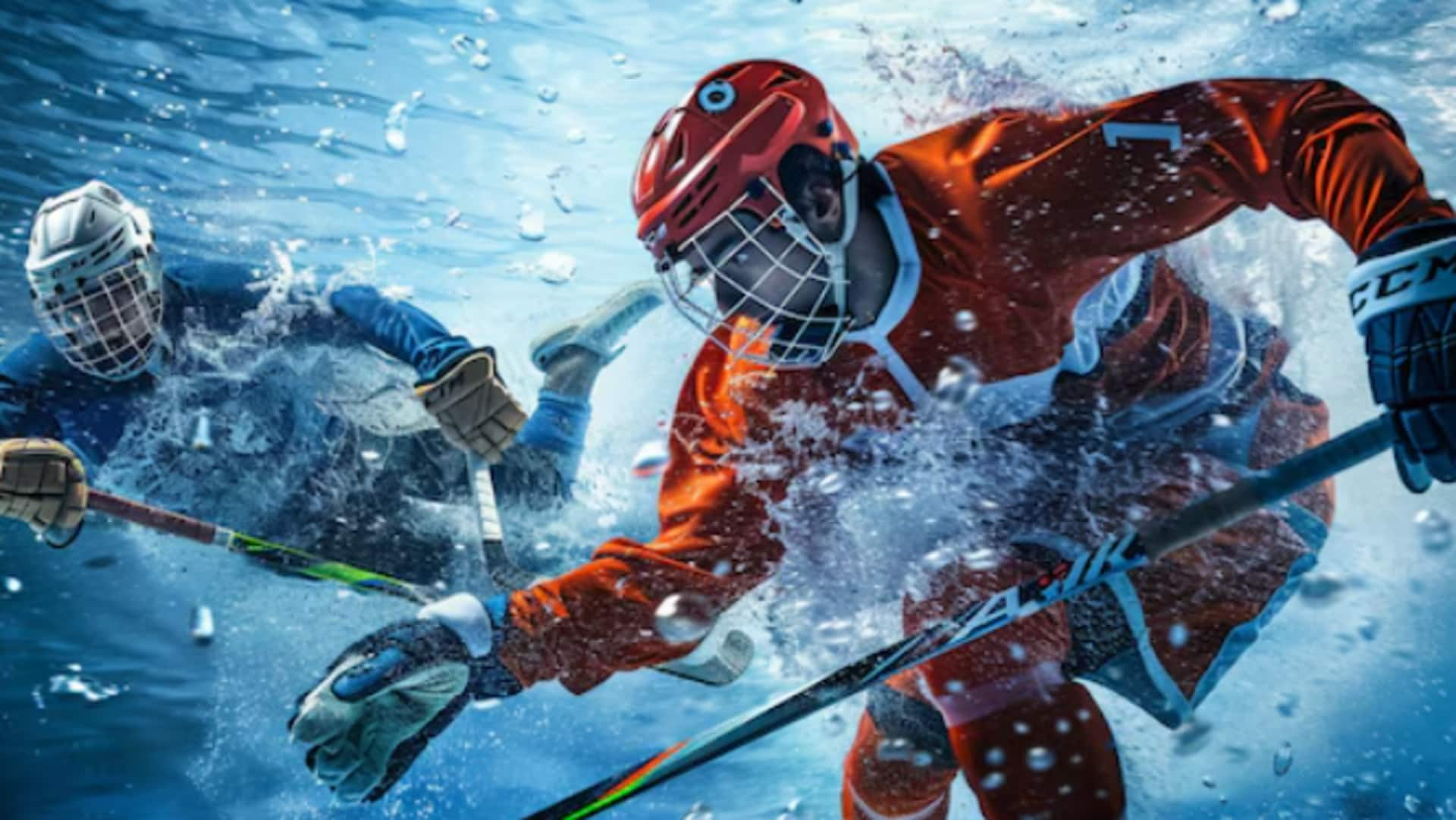
Dive into underwater hockey: A beginner's guide
What's the story
Underwater hockey combines elements of swimming, diving, and of course, hockey! Players use a short stick to push a puck across the pool floor and into the opponent's goal.
Played in the tranquility of a pool, this sport requires breath control and teamwork.
This guide will help beginners dive into the world of underwater hockey, focusing on essential skills and tips for getting started.
Breath control
Mastering breath control
How to improve breath control for underwater hockey?
Start with static breath holds in shallow water, aiming to increase your time gradually.
Progress to swimming short distances underwater.
Doing breathing exercises on land can also help build lung capacity and control.
With regular practice, you'll be able to spend more time underwater during games.
Team positions
Understanding team positions
Each player in underwater hockey has a defined role: forwards are the primary scorers, defensemen prevent the opposing team from reaching their goal, and midfielders provide support to both the offense and defense.
Understand the responsibilities of each position by observing games or playing in practice matches.
Identifying your strengths and knowing where you excel will allow you to contribute more effectively to the team's strategy.
Stick handling
Basic stick handling skills
Mastering stick handling is crucial in underwater hockey.
Start with simple drills such as pushing the puck directly in front of you as you swim and practicing turning with the puck while maintaining control.
Learn to use both sides of your stick to increase your ability to maneuver around opponents.
Once you're comfortable, add passing drills with your teammates to enhance coordination.
Communication
The importance of communication
Great teams in underwater hockey thrive on non-verbal communication. You can't exactly chit-chat underwater!
Establish a system of signals with your team for key strategies like passing and defense.
Drill these signals during training so they become second nature during games.
Mastering breath control, understanding team positions, honing your stick skills, and effective communication are the keys to becoming a formidable player in underwater hockey.